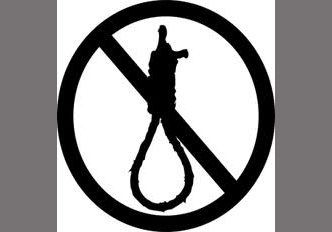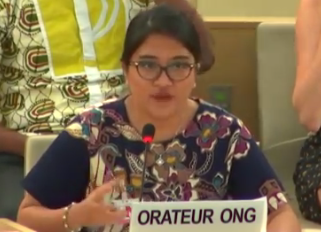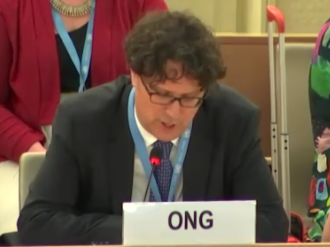
Jul 8, 2019 | News
The ICJ welcomes the report issued today by the United Nations Office of the High Commissioner for Human Rights (OHCHR) documenting human rights violations and abuses in Indian administered Kashmir and Pakistan administered Kashmir.
The ICJ called upon both India and Pakistan to take immediate measures to implement the Report’s main recommendations, and to hold security forces as well as non-state actors accountable for human rights violations and abuses.
The Report follows a June 2018 report that documented similar violations, as well as the widespread impunity for human rights violations by Indian security forces and armed groups allegedly supported by Pakistan. The Indian Government has rejected both reports as a violation of its “sovereignty and territorial integrity”. The Pakistan government has welcomed the report and called for the establishment of a United Nations Commission of Inquiry.
“It is unfortunate that India has again refused to acknowledge the facts set out in the OHCHR report, or to pledge action on its recommendations,” said Frederick Rawski, Asia Pacific Director for the ICJ.
“This is an opportunity for India, a member of the Human Rights Council, to lead by example. It can start by repealing the Armed Forces Special Powers Act and launching an investigation into rights abuses in line with international standards and the guidelines set out by the Indian Supreme Court,” he added.
The Report documents human rights violations by Indian security forces including extrajudicial killings, arbitrary detentions, unlawful custodial deaths, enforced disappearances, and ill-treatment and torture, including rape and sexual violence, in Indian-administered Kashmir.
According to the Report, based on data from civil society organization Jammu and Kashmir Coalition of Civil Society (JKCCS), 71 extrajudicial killings were allegedly committed by security forces in 2018 (for a total of 1081 between 2008 and 2018). Between 2016 and 2018, 1253 people have been blinded by pellet guns.
The Report highlights how the extraordinary powers granted to security forces by the Armed Forces (Jammu and Kashmir) Special Powers Act, 1990 has been wielded arbitrarily and led to near total impunity from prosecution. In addition, it documents human rights abuses committed by non-state armed groups in Indian-administered Kashmir including kidnappings, killings and rape.
The Report also documents rights violations in Pakistan-administered Kashmir, including restrictions on freedom of expression and opinion, assembly and association, and the abuse of vague and overbroad anti-terrorism laws in contravention of international human rights law.
The Report documents cases of arbitrary arrest by local authorities and intelligence agencies, including charging 19 activists with treason for organizing a rally in November 2018, and the arbitrary detention of 30 members of the Jammu Kashmir National Students Federation in March 2019 by Pakistani law enforcement. The Report notes the particular vulnerability of journalists to threats, harassment and arbitrary arrest.
“While we commend Pakistan for welcoming the Report, the fact remains that the Government has done little to prevent the continuation of human rights violations by its security forces, or to implement the recommendations of the previous report,” Rawski said.
“Pakistan must take action to hold perpetrators of rights violations accountable, and take action to end threats and violence targeted at human rights defenders and journalists,” he added.
The ICJ called on both Pakistan and India to grant unconditional access to the OHCHR and Special Procedures of the UN Human Rights Council, and to ensure that human rights defenders and journalists can carry out their work without threats or reprisals from security forces and non-State armed groups.
The ICJ also underscores the importance of the OHCHR recommendation that the United Nations set up an independent commission of inquiry into allegations of rights violations by all parties to the conflict.
The ICJ urged both the Indian and Pakistan governments to respect, protect and fulfill their international human rights obligations in Kashmir, to accept the Report’s findings and take immediate and effective action to implement its recommendations.

Jun 28, 2019 | News
The ICJ categorically condemns Sri Lankan President Maithripala Sirisena’s endorsement of death warrants of four people convicted of drug-related offences.
Today, the ICJ urged the President to stop the imminent execution of these four convicts and to respect the de facto moratorium Sri Lanka has observed on capital punishment that over the past 43 years.
The ICJ has called on Sri Lanka to move toward full abolition of the abhorrent practice.
“President Sirisena’s resolve to resume executions would be a violation of Sri Lanka’s obligations under international human rights law and a disastrous for human rights in the country. It is also inconsistent with the global trend towards the abolition of the death penalty,” said Frederick Rawski, ICJ’s Asia-Pacific Director.
Speaking to the media on Wednesday June 26, President Sirisena announced that four execution warrants of those convicted of drug offences had been signed and that the dates for the execution had also been determined.
Those dates were left unspecified. With 1299 people on death row, the lives of at least 46 more prisoners, whose execution warrants have been prepared, are now under imminent threat.
Sri Lanka is a party to the International Covenant on Civil and Political Rights, under which it is not permitted to impose the death penalty for drug offences, the resumption of the death penalty after an extended is also incompatible with the ICCPR.
The ICJ opposes the death penalty in all circumstances without exception. The death penalty constitutes a violation of the right to life and the right not to be subjected to cruel, inhuman or degrading punishment.
The UN General Assembly has adopted repeated resolutions, most recently in December 2018, by overwhelming majority in calling for all retentionist States to observe an immediate moratorium with a view to abolition.
Sri Lanka voted in favour of a moratorium on the use of the death penalty in the 2018 UN GA Resolution.
The ICJ urgently calls on the Government of Sri Lanka to immediately halt all plans for execution and to do away with the capital punishment once and for all in keeping with its own commitment before the UN General Assembly for a global moratorium on the use of death penalty.
Instead of resuming executions, the Sri Lankan authorities should focus on effective, evidence-based approaches to crime prevention in manners that conform to international human rights law and standards.
Background
The UN Human Rights Committee, the supervisory body for the ICCPR, has made it clear that the imposition of the death penalty for crimes that are not of extreme gravity involving intentional killing, such as “drug offences” is incompatible with the Covenant as such offences do not meet the threshold of “most serious crimes”.
It has affirmed that that States parties that are not yet totally abolitionist should be on an irrevocable path towards complete eradication of the death penalty, de facto and de jure, in the foreseeable future.
The death penalty cannot be reconciled with full respect for the right to life, and abolition of the death penalty is both desirable and necessary for the enhancement of human dignity and progressive development of human rights.
It is contrary to the object and purpose of article 6 for States parties to take steps to increase de facto the rate and extent in which they resort to the death penalty, or to reduce the number of pardons and commutations they grant.
Contact
Frederick Rawski, ICJ Asia Pacific Region Director, e: frederick.rawski(a)icj.org, t: +66 644781121

Jun 27, 2019 | Advocacy, Non-legal submissions
The ICJ highlighted the role of women in ensuring respect for human rights in relation to businesses, in a statement to the UN Human Rights Council today.
In an oral statement made during an interactive dialogue with the Working Group on Discrimination Against Women and the Working Group on the issue of human rights and transnational corporations and other business enterprises, the ICJ stated as follows (check against delivery):
The International Commission of Jurists (ICJ) welcomes the report of the Working Group on the issue of human rights and transnational corporations and other business enterprises, and agrees that despite years of progress, women continue to experience multiple forms of discrimination. Women’s voices continue to be unheard and they face insurmountable challenges as they use these voices to access justice on behalf of their communities.
We have seen numerous cases where women lead their communities in protesting abuses committed by business enterprises. Many of these communities are located in remote areas, far from courts or other mechanisms that could be used by them to seek justice. The women who lead these communities often do not identify as women human rights defenders. They see themselves as mothers protecting the health of their families or the land from which they grow their food and earn their living. Because of where these communities are located, local government authorities play a significant role on whether or not these women are heard or are able to access justice.
The women farmers of Kendeng in Indonesia, for instance, have been protesting the operation of a cement factory in their area, which contaminate their water and land. In 2016, the Supreme Court of Indonesia had already ruled in favor of these women farmers and their community, and ordered the revocation of the cement factory’s permit. To this day, however, the cement factory continues to operate, ignoring the final order of the Supreme Court. The Kendeng women farmers have raised the non-implementation of the Supreme Court’s order with the Governor of Central Java and the Indonesian government, but their voices remain unheard.
In the Philippines, the women community leaders of Pio V. Corpus, Masbate, have been protesting plans to establish a cement factory and a coal-fired power plant in their town. They allege that their local government leaders approved plans for this factory and power plant without consultation and in blatant disregard of the disastrous impact these would have on the environment and people’s health.
Mr. President, we join the Working Group in urging States and business enterprises to ensure meaningful participation of potentially affected women in all stages of human rights due diligence. We also urge States to take measures to ensure that women – wherever they may be located – are able to access justice for abuses committed by business. Finally, we recommend that local government authorities be made aware of the Guiding Principles and able to integrate the gender framework and guidance in discharging their human rights responsibilities.
Thank you.

Jun 25, 2019 | Advocacy, Non-legal submissions
Speaking at the UN Human Rights Council in a general debate on the oral update of the High Commissioner for Human Rights, the ICJ addressed issues around “foreign fighters”, criminalisation of solidarity with migrants, and the need for international investigation of violations in the Philippines.
The statement was as follows (check against delivery):
“The International Commission of Jurists (ICJ) thanks the High Commissioner for her oral update.
The ICJ agrees that accountability for crimes under international law committed by foreign fighters is essential; equally, it must be ensured through fair procedures. Where children are concerned, their best interests must be the guiding principle. [To the extent foreign fighters are addressed in relation to counter-terrorism measures, ICJ emphasizes that not only is disregard for human rights in countering terrorism wrong and unlawful in itself, it is also ineffective and indeed itself conducive to terrorism.]
The ICJ is also concerned at the criminalisation of solidarity with migrants in Europe and elsewhere. No one should be penalised for supporting human rights, including those that States fail to uphold. On Thursday, together with the OHCHR and the Geneva Bar Association, ICJ will screen a documentary in Room XIV, the UN Cinema, showing the impact of criminalization of solidarity.
The ICJ supports calls by the High Commissioner and Special Procedures for urgent action by the Human Rights Council on the Philippines. Adoption of a resolution at the current session to establish an independent international investigation is essential.
The huge number of killings in the name of countering drugs is part of a broader pattern of impunity. For instance, at least 39 lawyers have also been killed under the current administration, some of whom were representing victims of human rights violations. A fully independent national commission of inquiry and measures actually to bring perpetrators to justice are also needed to end the pervasive culture of impunity.”

Jun 25, 2019 | News
Myanmar’s 1982 Citizenship Law, which has fueled widespread discrimination against various ethnic minority groups, is irreconcilable with core rule of law principles and the State’s obligations under international human rights law, the ICJ said today in a briefing paper.
The briefing paper Citizenship Law and Human Rights in Myanmar: Why Law Reform is Urgent and Possible (available in English and Burmese) analyses the legal framework for citizenship in Myanmar, and assesses certain provisions of the 2008 Constitution relevant to citizenship as well as the 1982 Citizenship Law.
This law embedded the current narrow definition of citizenship, which generally links citizenship acquisition to membership of a prescribed “national race.”
The resulting system enables and legitimizes discrimination against various groups, particularly against persons of South Asian or Chinese descent, members of whole ethnic groups, such as the Rohingya, and also the children of single mothers.
“Enacted by unelected military governments, Myanmar’s citizenship laws fuel widespread discrimination throughout the country,” said Sean Bain, Legal Adviser for the ICJ.
“The government must act immediately to dismantle this discriminatory system and to protect in law the human rights of all persons,” he added.
The intentionally discriminatory character of this law, and its equally discriminatory implementation, largely explain why many long-term residents of Myanmar lack a legal identity (more than 25 percent of persons enumerated in the 2014 Census).
The ICJ recommends three immediately achievable, concrete areas of law reform to the Government: 1) legislative reform, including most urgently of the 1982 Citizenship Law and the Child Rights Bill now being considered by the parliament; 2) Constitutional reform, to protect the right of citizens to full political participation; and 3) to institute interim measures to address discrimination on the basis of race or ethnicity.
A review of the 1982 Law was recommended in 2017 by the Government’s advisory commission chaired by the late United Nations Secretary-General Mr Kofi Annan, but the Government has not yet demonstrated any tangible progress on this.
“The government has the means at hand to get rid of this discriminatory system, which has undermined the rule of law and blocked the development of a pluralistic democracy. The government can and must implement the recommendations of its own advisory commission. The pervasiveness of discrimination cannot continue to go unaddressed, and there are no reasonable legal grounds for further delay in initiating pathways to reform,” Bain said.
UN Member States, as well as International Finance Institutions and UN agencies, must also ensure that assistance to the Government of Myanmar enables necessary reforms, and does not, in any way, entrench the existing discriminatory system.
Coinciding with the launch of this report, yesterday the ICJ hosted an event in Yangon where a panel of Myanmar legal scholars and researchers discussed the impact of current legal arrangements for citizenship on human rights, and why law reform is both urgent and possible. Representatives including from diplomatic missions, UN agencies, the Myanmar National Human Rights Commission, a multilateral donor and Non-Government Organizations attended the event.
Background
“Citizenship” is a legal concept describing an individual’s relationship to the State. In contrast, “statelessness” is when somebody does not have citizenship of any State. Terms such as “nationality,” “race” or “ethnicity” are generally culturally embedded concepts, understood differently by different people and in different contexts.
In many countries, particularly those with diverse populations, the right to citizenship is defined broadly to include persons with different ethnicities and even nationalities. In post-independence Myanmar, the concept of being a “national” or “indigenous” had a generally broad definition, allowing persons of different backgrounds to become citizens, including but not limited to the descendants of persons who had immigrated to Myanmar.
The 1982 Citizenship Law embedded in legislation the concept of “national races,” and introduced a hierarchy of citizenship categories that effectively institutes first-class and second-class citizens. Under this system, many life-long residents of Myanmar have effectively been rendered stateless, including members of entire ethnic groups, and children of mixed ancestry.
This discriminatory system has fostered an environment where crimes against humanity have taken place with absolute impunity.
Although section 347 of Myanmar’s 2008 Constitution guarantees “any person to enjoy equal rights” and protections before the law, other constitutional provisions restrict “fundamental rights” to citizens, including the rights to health and to education. Even for citizens, political rights are limited if a parent, child or spouse is not a citizen of Myanmar – the most infamous example of this is Daw Aung San Suu Kyi, who is constitutionally barred from the Presidency because her sons are foreign citizens.
The formation in February of this year of a Constitutional Amendment Committee also presents opportunities to expand the narrow definition of “fundamental rights,” to ensure their compliance with the constitutional guarantee of equality and protection before the law for “any person” (section 347), and with the State’s international human rights law obligations.
The Child Rights Bill, currently under consideration by the parliament, also offers opportunities to ensure that Myanmar’s laws comply with its treaty obligations, for example, under the UN Convention on the Rights of the Child, including with respect to the right of a child to acquire a nationality (citizenship), and the State’s related obligation to prevent statelessness.
See also
ICJ convenes workshop on reforming 1982 Citizenship law
ICJ materials on human rights law in Myanmar
Download
Myanmar-Citizenship law reform-Advocacy-Analysis Brief-2019-ENG (full report in English)
Myanmar-Citizenship law reform-Advocacy-Analysis Brief-2019-BUR (full report in Burmese)
Myanmar-Citizenship law reform-News-web story-2019-BUR (full story in Burmese)
Contact
Sean Bain, ICJ Legal Adviser, sean.bain(a)icj.org









